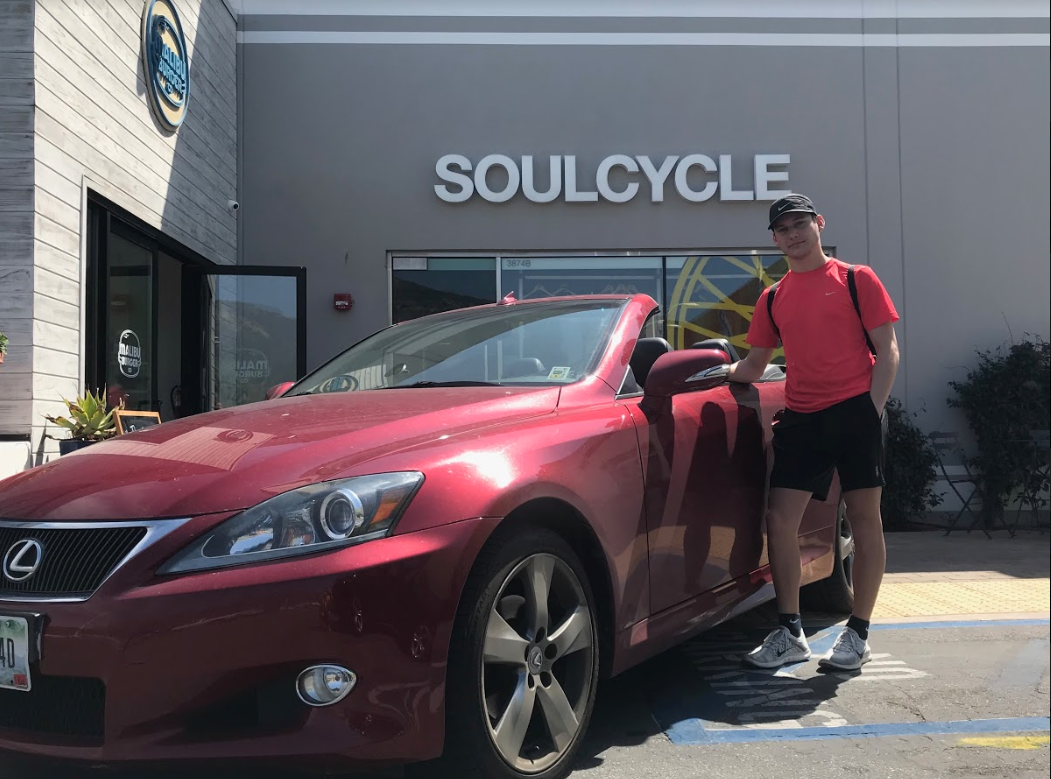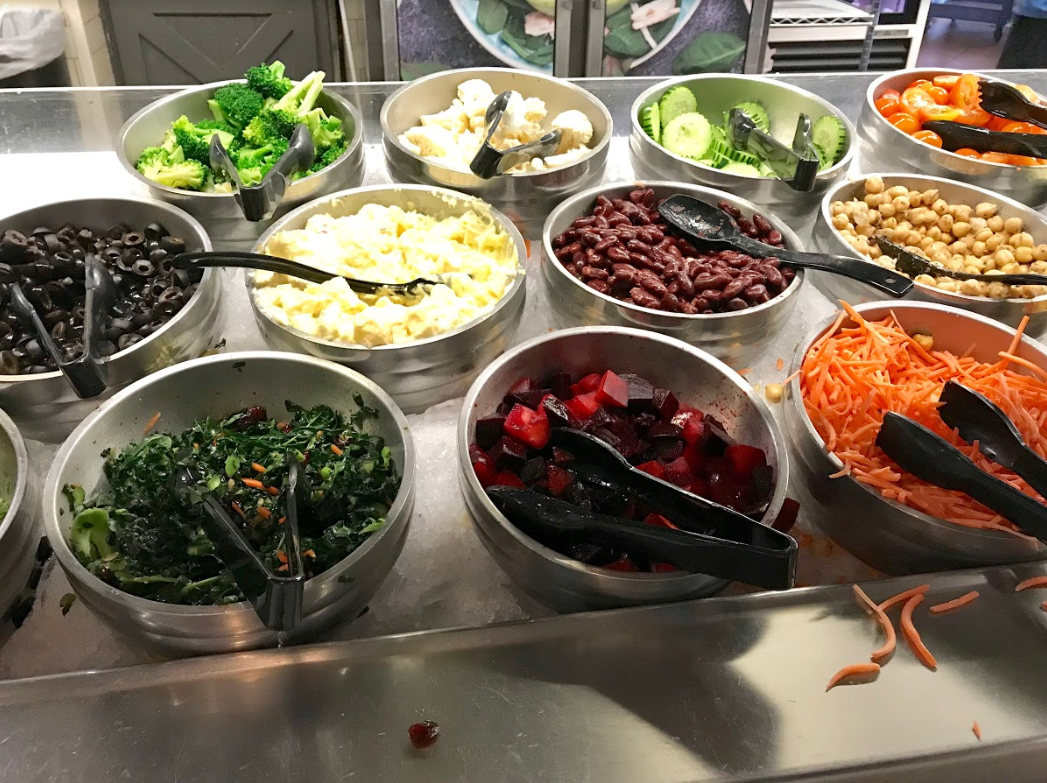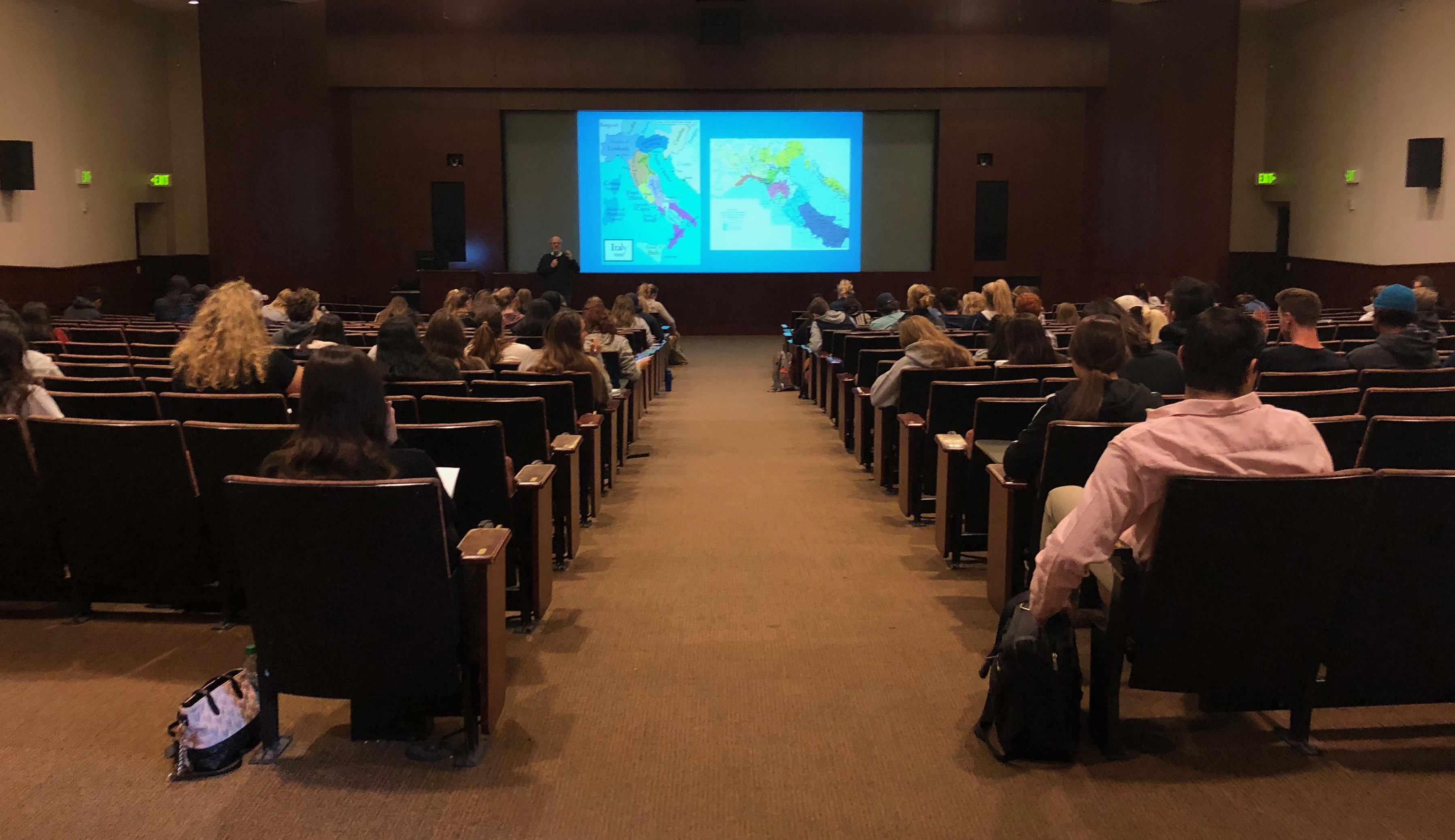
The Malibu Barbie lifestyle sounds totally rad until the pressure needed to maintain such an image melts the plastic.
Pepperdine students feel extra pressure to look good because of the wealth and beach culture in Malibu. This peer pressure leads to dangerous diet and exercise habits students adapt to alter their identities.
“College is about trying out new versions of yourself,” Pepperdine Sociology Professor Bryant Crubaugh said. “When there’s a bunch of people doing that together, that could be positive, but it could also be really dangerous when people tell you what you are trying is not working.”
A Pepp Post poll of 57 students showed that the majority of students said they have changed their diet, fitness and appearance since coming to the Malibu campus. Pepperdine offers counseling for those who have a hard time maintaining a healthy relationship with food and exercise.
Meeting the Malibu image
The motivation toward disciplined health habits is almost purely because of the 310 area code.
“There’s a national perception (of Malibu) that invokes an image,” Crubaugh said. “There’s a lot of pressure without people directly forcing it.”
Many students believe that going to school in Southern California and being by the beach pressures students to look a certain way.
Malibu is notorious for television shows that emphasize either beach bodies or extreme wealth, such as Baywatch and Zoey 101. Many residents are high-profile celebrities, including Paris Hilton and Robert Downey Jr., according to Ranker. Median condo prices in Malibu exceed $1 million and median home prices are around $3.65 million, according to the Malibu Times.
“The region influences how you act,” said Caleb Perkins, a senior business administration major.
The poll found that roughly 46 percent of students think that living in Malibu has made them feel the need to keep up a specific appearance.
Students living in close quarters with each other increases dialogue about weight and appearance.
“When you have peers focused on their bodies and making comments about their bodies, that can increase thoughts about your own body,” Psychology Professor Jennifer Harriger said.
Appearance altering
Malibu is known for being both laid back and stylish at the same time. Spend 10 minutes in the Malibu Village and one will see numerous designer items.
“I think the beach culture tied with wealth leads to a very specific pressure to appear a specific way, to be comfortable wearing less,” Crubaugh said.
This unwritten dress code causes people to buy and wear certain clothes they wouldn’t have worn before.
“I have worn more colors here just because it’s conducive to this environment,” first-year economics major Colette Faulkner said.
Pop culture focuses heavily on the way one dresses. Popular rap songs like Lil Pump’s “Gucci Gang” emphasize designer brands. Actually seeing designer brands everywhere adds further pressure.
“Here in Southern California, there’s definitely a stigma of how you dress,” said Nicole Bavaro, a first-year transfer psychology major. “Even if you dress down, it has to be a designer brand compared to just a plain old T-shirt.”
The poll found that roughly 49 percent of students said they put more energy into their appearance in college than they did in high school.
Some students change their personality and not just their outfits.
“I had a couple friends freshman year that would’ve dressed and spoken a certain way, and overtime I saw them change, especially now being a senior,” Perkins said.
Perkins said it is hard to say if these changes were conscious ways to conform or simply maturing but he did note that many people seemed to fit a specific mold more so than before.
Eating habits

Students sometimes change their appearances through unhealthy fad nutrition and exercise plans.
“I can definitely feel pressure to eat healthy and go on a juice cleanse or get Sunlife or something healthy,” Bavaro said. “I’m not about it but I can totally understand the pressure.”
Roughly 58 percent of students said they feel they need to change their eating habits.
Since Bavaro is a transfer student, she’s able to compare the nutrition options to her old school, Ohio State University.
“I’ve noticed there’s a lot of vegans here and vegetarians,” Bavaro said. “People care more about what they eat here than the Midwest.”
Natalia Rawjee, a first-year sociology major from Pakistan, sees major differences between her home country and Malibu.
“Here, it is more vegan and vegetarian and gluten free and dairy free but there it’s just eating healthy and in moderation,” Rawjee said.
The strenuous diet habits of Southern California have negative effects on some students.
“During my time at Pepperdine, I have felt a lot more self conscious and aware of the Pepperdine stigma and all the skinny, tan Californians,” Bavaro said. “I have felt self conscious.”
The dangers
This pressure can easily turn dangerous.
“What we see at Pepperdine is called disordered eating,” Harriger said. “It’s not clinical, but it’s still problematic.”
About 30 million American people will have an eating disorder in their lifetimes, according to the National Eating Disorder Association. Disordered eating is when someone suffers the same symptoms of an eating disorder at a lower severity, according to Eating Disorders Victoria.
“A very high percentage of college students suffer from some sort of body dissatisfaction,” Harriger said.
Disordered eating is prominent in college culture, she said.
Harriger believes a strong reason behind disordered eating for college students is the pressure students feel from peers or themselves.
“Peer pressure can make you do something dangerous,” Crubaugh said. “A lot of times you do stuff that feels good in the moment to get positive feedback, and it could be dangerous.”
Crubaugh said the environment of Southern California leads to an indirect version of peer pressure.
“Peer pressure is about fitting in,” Crubaugh said. “Your desire to be with people, but also your desire to be affirmed.”
Feeling the need to look the same, if not better than everyone, is a key reason people are trying harder.
Exercise habits
A good physique also requires a good fitness regimen, but surprisingly, students reported less pressure to workout than to eat healthy.
Some students think they need to workout more only because they don’t watch what they eat. Being surrounded by good food makes it hard for first-year undeclared student Joe Zintz, so he said he works out more than he did at home.
“If I did work out, it was once a week maybe,” Zintz said. “Here, I try to go at least three times a week.”
He said he doesn’t feel alone in his struggle to achieve his ideal body.
“I feel like it’s not talked about but I definitely know people think about the pressures to work out,” Zintz said.
Perkins agreed that Malibu has influenced his fitness ideology.
“It’s changed the way I exercise, at least the mentality of it,” Perkins said. “Now it’s more of a body image mindset. Thinking about ‘How will my body look compared to others?’”
Just like too strenuous of a diet can be fatal, so can overdosing on exercise.
Over-exercising releases cortisol, a stress hormone, that can lead to a weakened immune system, Dr. Joseph Mercola wrote on a Peak Fitness blog.
Help available
Harriger stressed that eating disorders are very hard to diagnose from physical signs. Many people with eating disorders appear underweight and many appear overweight but the key signs are visible through their behavior.
The National Eating Disorder Association notes the common behavior of those with eating disorders may be frequent dieting, extreme concern with body size and food groups and frequent fad dieting.
“Our Pepperdine Counseling Center has an entire treatment team that focuses on eating disorders,” Harriger said. “They’re well equipped to handling those types of issues.”
Pepperdine’s website lists different groups to attend for eating concerns for both men and women.
Shelle Welty, licensed psychologist and associate director of the Pepperdine Counseling Center, leads the Eating Disorders Support Group, which helps students work toward or sustain recovery from an eating disorder.
Tiger Ashtiani completed the reporting for this story under the supervision of Dr. Christina Littlefield and Dr. Theresa de los Santos in Jour 241 in spring 2018. Dr. Littlefield supervised the web story.



